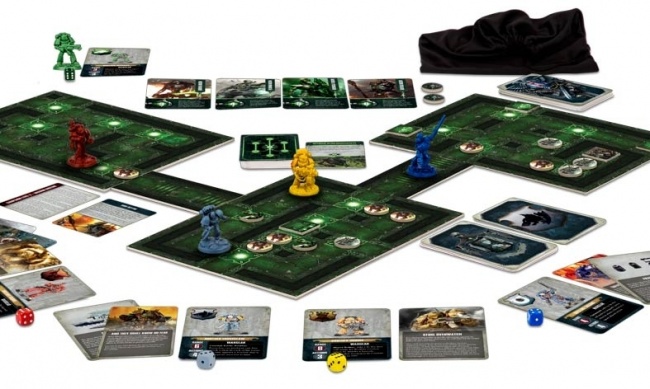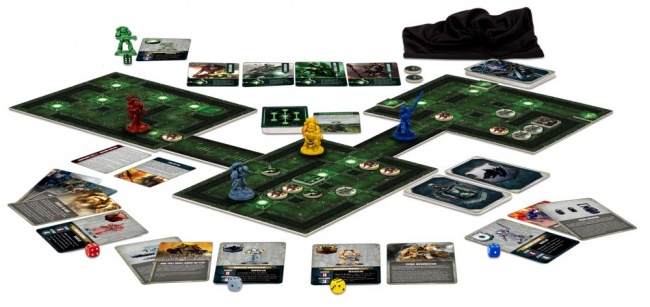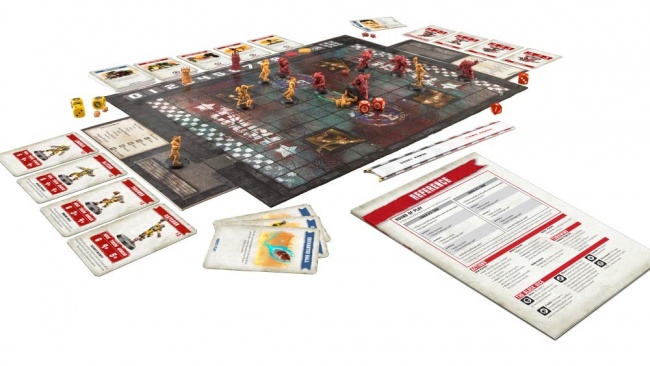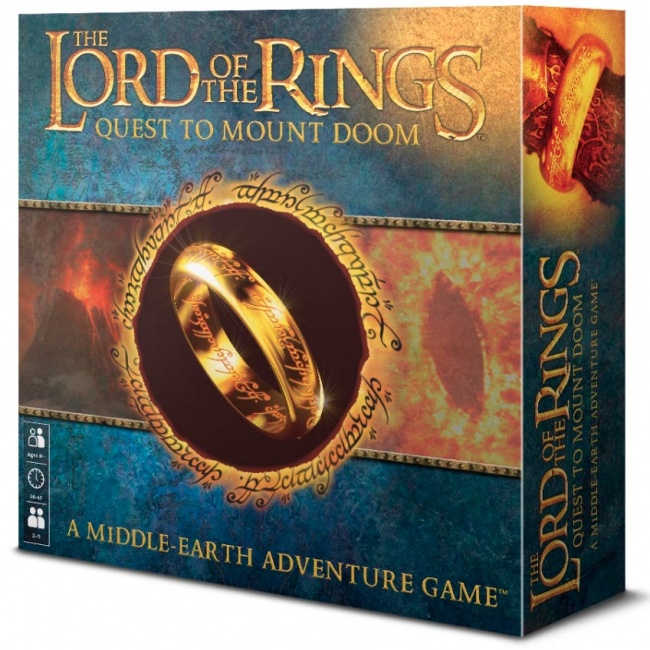Based on the Warhammer 40,000 setting, Space Marine Adventures: Labyrinth of the Necrons is a fast-paced dungeon crawl style game in which players don the armor of the iconic Space Marines as they explore a newly-awakened Necron tomb.
The game includes easy-to-assemble Space Marine models in five player colors, a modular tile-based game board, plus the cards, dice, and tokens needed for the game. It is intended for 1 to 4 players, ages 8 and up, and plays in about half an hour. MSRP is $39.95.
Blitz Bowl distills the Blood Bowl fantasy football experience into a more compact form. Two players captain teams of human or orc players who compete in a small arena-style playing field, trying to overcome opposing players and obstacles on their way to scoring touchdowns.Intended for two players, Blitz Bowl has plastic human and orc miniatures cast in player colors, a game board, and the cards, dice, and tokens needed to play the game. Designed for ages 8 and up, games take 30 to 60 minutes. MSRP is $44.95.
Fans of the world of Middle-earth will have a new way to explore that world in The Lord of the Rings: Quest to Mount Doom. The One Ring is hidden somewhere in Middle-earth, and the players are in a race to find it, recover it, and deliver it to Mount Doom so it can be destroyed.This game is designed for 2 to 5 players, ages 8 and up, and games take about 45 minutes. MSRP is $49.95.
Games Workshop has been expanding the reach of its stable of IPs, extending licenses to other companies to produce games set in its game worlds (see “A Familiar World Gets a New Twist in ‘Talisman – Legendary Tales’”) and as a skin for more traditional board games (see “The Grimdark Universe of ‘Warhammer 40,000’ Overruns ‘Monopoly’”), in addition to launching a broader assortment of games using those IPs developed in-house. The strategy appears to be working, with sales and profits markedly up for the company (see “Games Workshop Sales Up 39% For Year”).







 View Gallery: 3 Images
View Gallery: 3 Images